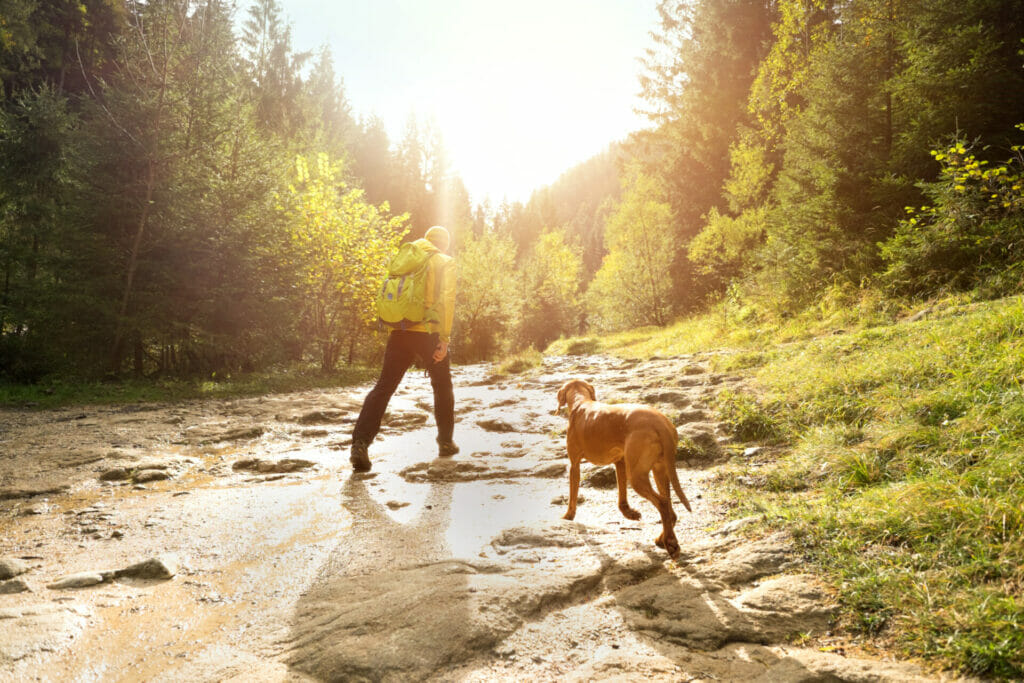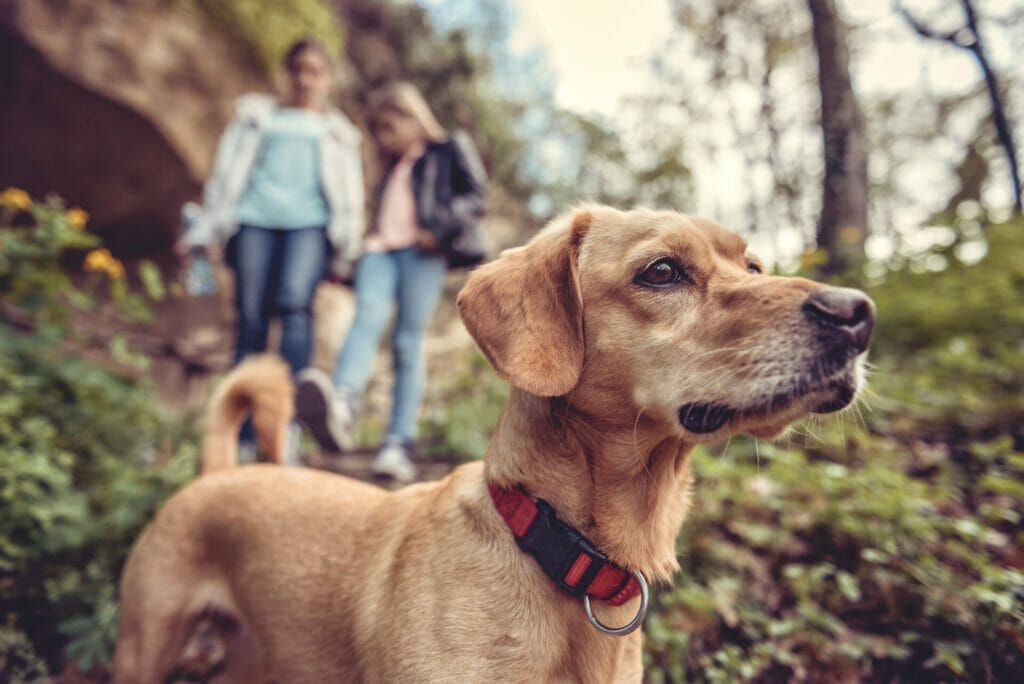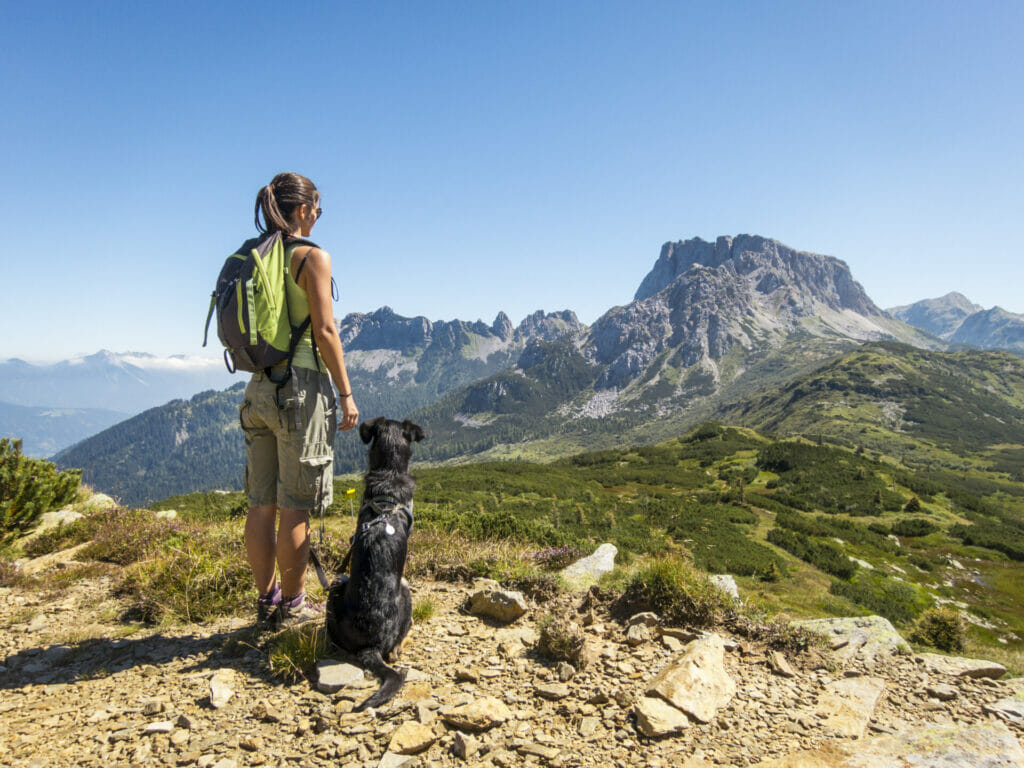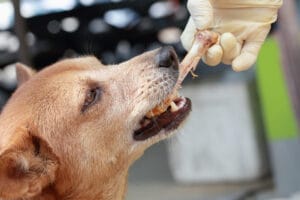The warm weather is quickly approaching, and like most outdoor enthusiasts and their dogs, we’re all itching to get outside and enjoy the sun. For many dog owners, hiking and exploring nature is one of the most enjoyable ways to spend a warm, sunny afternoon with your pup. Whether you prefer relaxing hikes through your local nature trails or pushing your limits while climbing mountains and brush, bringing your furry friend along can make the experience even more enjoyable.
Just like any activity we do with our dogs, there are some safety tips we can use and follow to ensure a fun and safe experience for everyone. Today we will learn how to keep our pups safe while trekking through the great outdoors.
Research Trails and Parks
Something most dog owners overlook is researching the trail or park they plan on hiking at. Every park has its own rules, including regulations regarding pets. The last thing you want is to arrive at a trail or park just to realize that your dog is not allowed.
Stay On The Trail
The trail you hike is free of poisonous plants, thorny bushes, and sharp rocks. By staying on the trail, you avoid things that can injure you and your dog. Venturing off of the trail also increases the possibility of you getting lost. The last thing anyone wants is to be stranded in the middle of nowhere with no idea how to return to civilization.

Pack Lots of Water
Especially in the warm spring and summer, bringing ample water is crucial. Pack enough water for both you and your dog when hiking, and don’t forget a water bowl! Feel free to pack some treats too!
Stay Up-To-Date With Vaccinations
Whether you’re trekking through the forest or just going for a stroll around the neighborhood, your dog can be exposed to various diseases and illnesses. Especially while hiking, the likelihood of your dog coming into contact with a harmful disease increases because they are exposed to areas where other dogs, people, and wild animals interact daily. Keeping your dog up-to-date on their vaccines for common diseases in your area is one of the best ways to prevent your dog from getting sick while still enjoying the outdoors.
Bring a First Aid Kit
Similar to being exposed to diseases, hiking through wooded areas or mountains can increase the chance of your dog getting injured. Packing a first aid kit with both human and dog-safe products allows you to treat minor injuries or manage major injuries until you get to a veterinarian or doctor.
Regularly Check For Injuries and Ticks
Following up on our previous tip, checking your dog regularly throughout your hike for injuries can allow you to treat them and prevent them from worsening. Sometimes through the excitement of exploring new sights, sounds, and smells, your dog might ignore an injury, and it’s our job as dog owners to notice these and take action.

Consider Your Dog’s Fitness Level
As we ease into the warm weather and outdoor activities, it’s essential to consider your dog’s current fitness level and base your outings accordingly. For example, if your dog has been inside all winter and hasn’t had much exercise, going on a five-mile hike probably isn’t the best idea. Instead, start small and build up. Even if your dog acts as if they can go on for days, it’s best to do shorter hikes to prevent soreness and other health problems.
Consider Your Dog’s Behavior Level
Similar to the previous tip, considering your dog’s current level behaviorally is equally as important. Before hitting the trails, your dog should know basic obedience commands and be able to come when called. If your dog struggles to acknowledge your presence, doing smaller outings and working up to something exciting is best. Hiking is also a great training opportunity to test your dog in new environments and build resiliency.
Hiking can be a great way to explore the outdoors, exercise, and bond with your canine companion. By following the safety tips we discussed, you are bound to have a blast with your dog while ensuring their safety and wellbeing.




















